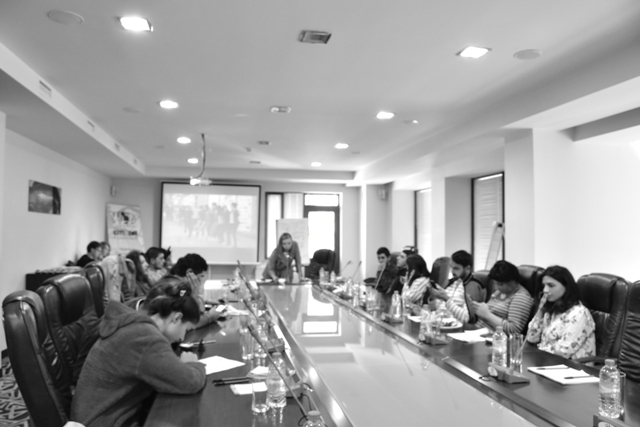On September 19-22, 2019, Helsinki Citizens’ Assembly Vanadzor jointly with Nesehnuti Czech non-governmental organization, with the financial support of Open Society Foundations – Armenia, organized “Environmental conservancy and human rights” training-discussion for young people.
Both Armenian and international experts conducted trainings on human rights and environmental conservancy and shared their experience of carrying out campaigns.
Artur Sakunts, Chairman of Helsinki Citizens’ Assembly Vanadzor, and Davit Amiryan, Director of Open Society Foundations-Armenia, delivered a welcoming speech addressed to the participants, presented the training goals and expectations.
Davit Amiryan also talked about the human rights and their psychological manifestations. “When we talk about someone’s individuality, we talk about his/her rights and freedoms. Rights are born with us and nobody can take them away”, he underscored.
Then, A. Sakunts talked about the human rights challenges and opportunities in Armenia.
“Whether there are human rights provisions established by the legislation of Armenia or not, they exist. If they have not been established and regulated, it means that we do not secure and violate human rights, if they are established but not exercised, then we have problems at this level. Problems arise out of indifference. Speaking up is the first step to overcome indifference”, this is how A. Sakunts began his speech and then used examples to touch upon the situation of human rights protection in Armenia.
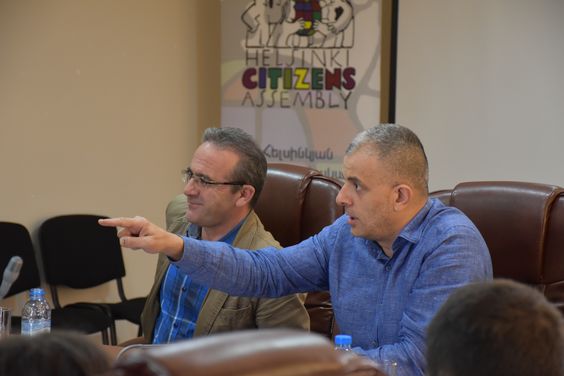
Nina Karapetyants, Head of Helsinki Association, touched upon the protection of interests in the sphere of human rights. She used specific examples to talk about the issues present in the RA after the revolution, possibilities of their solution, difficulties in implementing events to address the issues particularly in regions. The participants actively gave questions and discussed the instances.
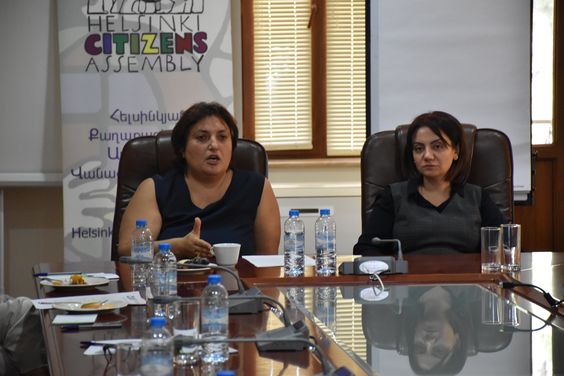
The first day was concluded by Zaruhi Hovhannisyan, coordinator at “Coalition to Stop Violence against Women”. The latter touched upon civil movements and their issues in the New Armenia. Zaruhi Hovhannisyan talked about various disobedience actions and protests that occurred in Armenia in different years, messages and slogans used throughout them, failed and successful experience and how that experience was used in 2018.
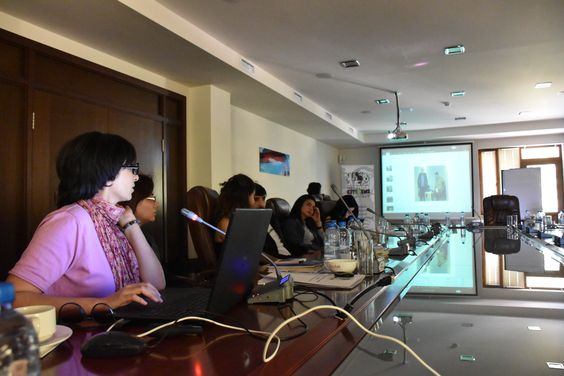
On the second day of the training, Davit Petrosyan, member of “Restart” student initiative, inspired the young people with his experience. He presented “The role of the youth in social-political life” topic and shared the ideas of “Restart” initiative.
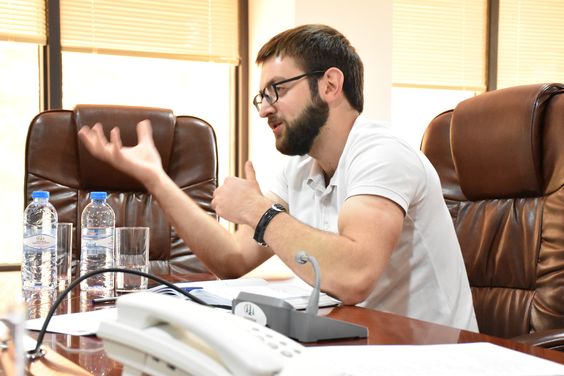
The Czech experience of civil campaigns was presented by Martin Hitan, founder of Nesehnuti.
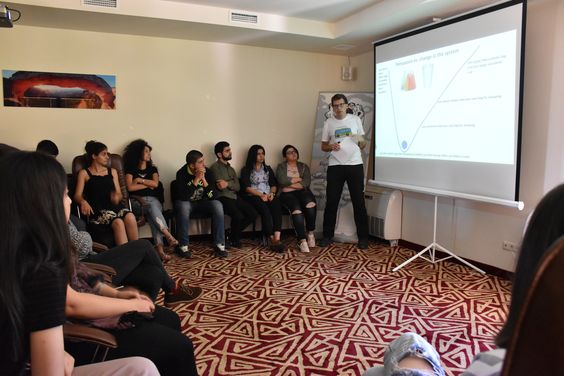
The third day was entirely dedicated to corruption and environmental conservancy matters. First, Kristina Barseghyan, executive director of “Hetq” media, presented the peculiarities of fact collection on corruption risks and crimes, she also told how “Hetq” collects and uses facts.
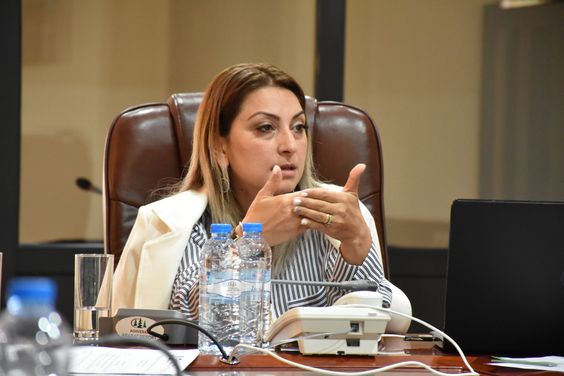
Hasmik Manukyan from Hrazdan was particularly impressed by this topic. During the very process of the training, she decided to get engaged in investigative journalism. She believes that both human rights and environment conservancy parts were very useful for the representatives of non-governmental organizations. According to her, the trainers’ experience of conducting environmental conservancy campaigns would help implement their ideas, as well. With regard to the problems that human rights defenders encountered in their activity, it is important for the prediction of possible risks.
The second part of the day was dedicated to environmental conservancy. Environmental activists Tehmine Yenokyan and Ani Khachatryan talked about the experience of Armenia and Maria Kolesnikova, head of environmental conservancy organization “MoveGreen” in Kyrgyzstan, talked about the experience of their country.
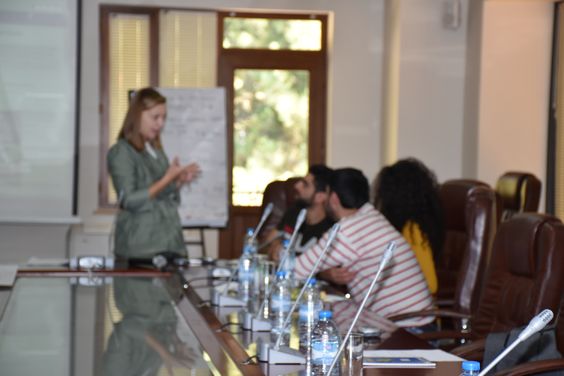
Through their experience, environmentalists from Armenia presented what challenges environmental initiatives have in Armenia and discussed the opportunities of overcoming them with the participants.
It was Tehmine’s and Ani’s experience that inspired training participant Ani Petoyan.
She is a jurist in the making from Gavar. Ani finds that non-formal education is very important in the sphere of human rights and considers it essential to look at legislative and practical issues from the point of view of human rights defenders, how the regulations that are enshrined by legislation but do not act, get exercised.
Ani considers that Sotk mine exploitation and Sevan Lake condition are serious environmental issues in her region. Together with a group of active young people, they have already initiated events to address the second issue. They are going to solve the pollution issue of Gavaraget that flows into Sevan. Both young people and the municipality and the Council of Elders are involved in the river cleaning works.
Maria Kolesnikova conducted quite a comprehensive training with the example of “Clean air for Bishkek” campaign, which continued on the last day of the training. In this frame, the participants learnt how to plan and implement environmental campaigns and consolidated the obtained knowledge by group works.
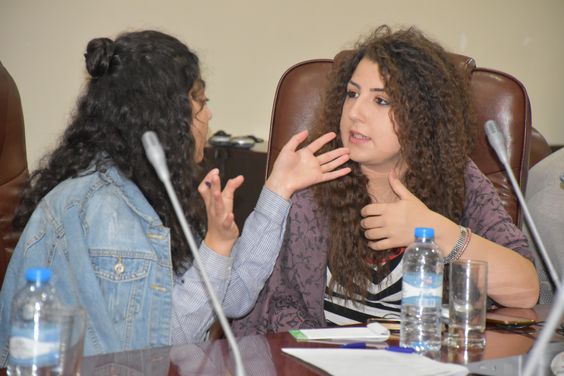
Ara Mikayelyan from Goris and Hayk Sargsyan from Sardarapat have already outlined how they will apply the acquired knowledge in their communities.
Ara says that he has simultaneously two environmental conservancy ideas which he is going to implement through cooperation with Maria. He decided to check the air pollution degree in Goris and compare it to Yerevan, he also has a project to address the pollution issue of the river that flows through Goris.
Hayk, too, has environmental conservancy project ideas that he is going to implement in Sadarapat. They are still in the preliminary phase.
Yelena, another participant of the project, is from Gyumri. Due to the training, she has a clearer idea of planning projects. “If you want to change something, if you have a specific project, you can also implement it without making a lot of noise”, Yelena shares her impressions with us. It is true that she had some idea about both human rights and environment conservancy, but the training helped her think of it more subjectively.
Alfred Nikoghosyan from Armavir made his “Eco Armavir” initiative idea more subjective. He says that he has already taken certain steps in this direction and as a result of the training, he also developed an action plan and is going to implement it. “Eco Armavir” is a waste recycling initiative, they will first try to sort the garbage and then organize its recycling.
Besides the content part of the training, Karen Hakobyan also finds new acquaintances very important. New confederates can become good colleagues for the campaigns conducted in human rights and environment conservancy spheres.
Karen has a very interesting idea on addressing issues of Ararat city that has a gold extraction plant and a cement plant. He is going to grow plant species in Ararat that absorb dust and contribute to air purification. According to him, it will reduce the degree of air pollution to a certain degree.
For more photos click here
